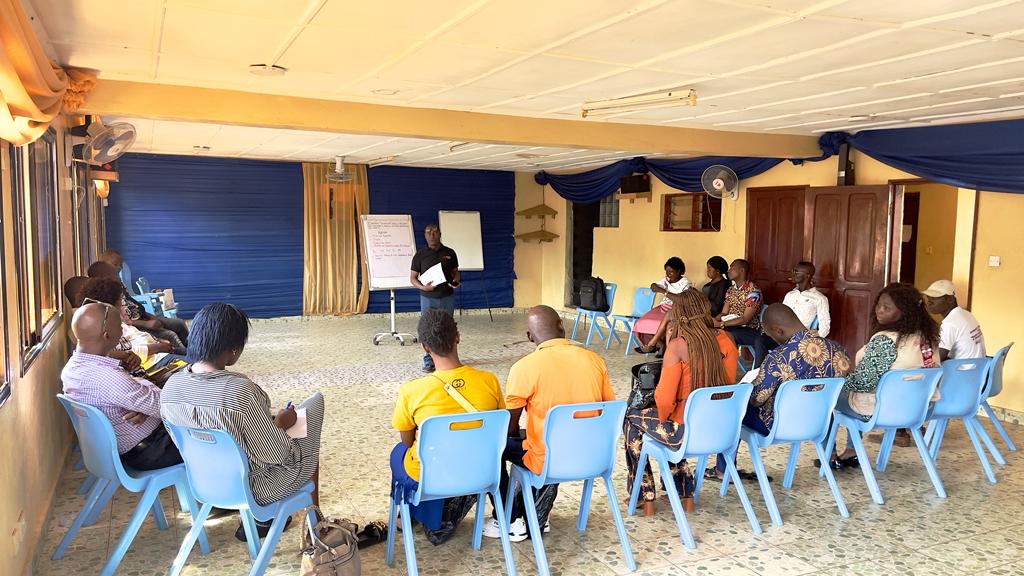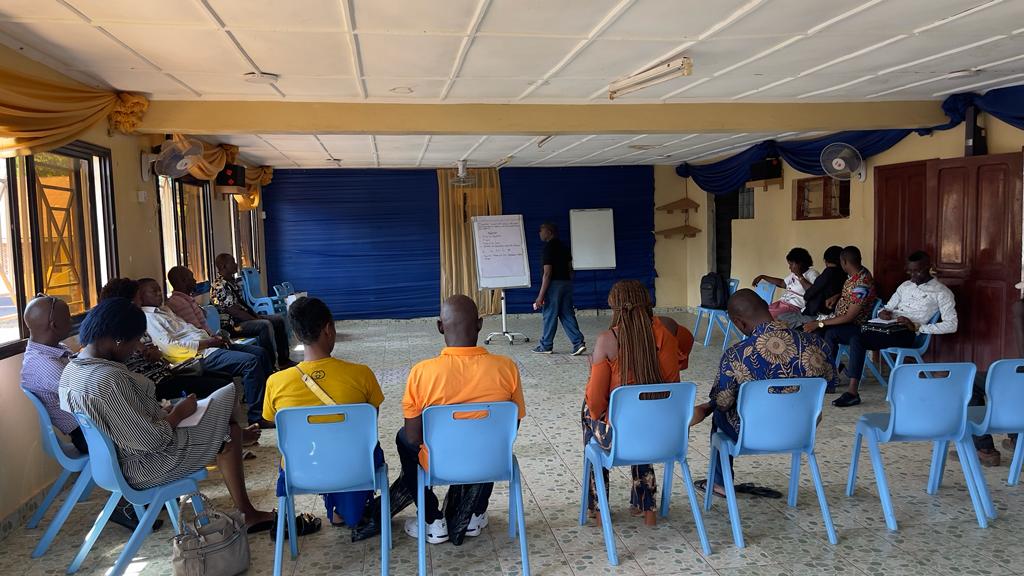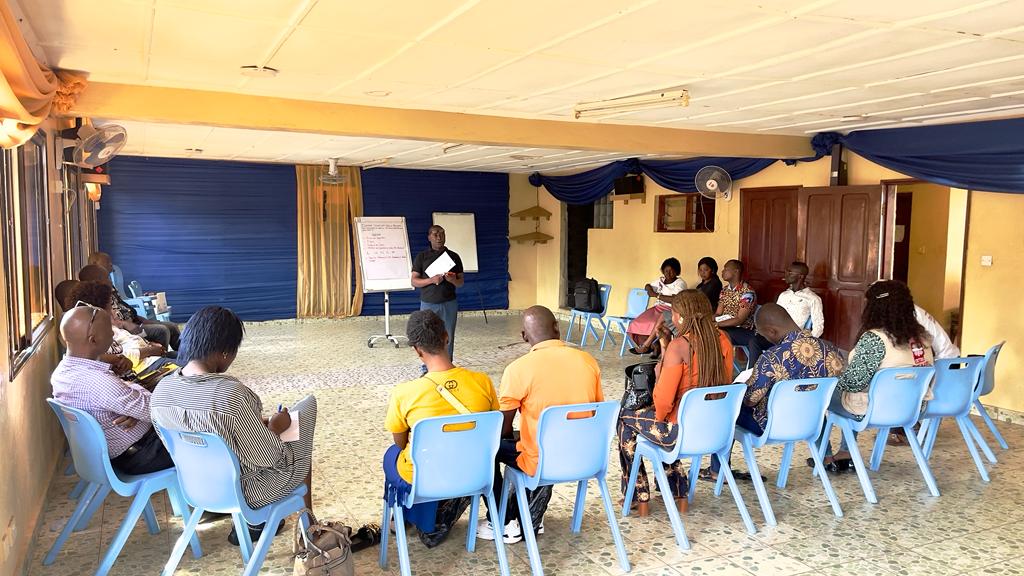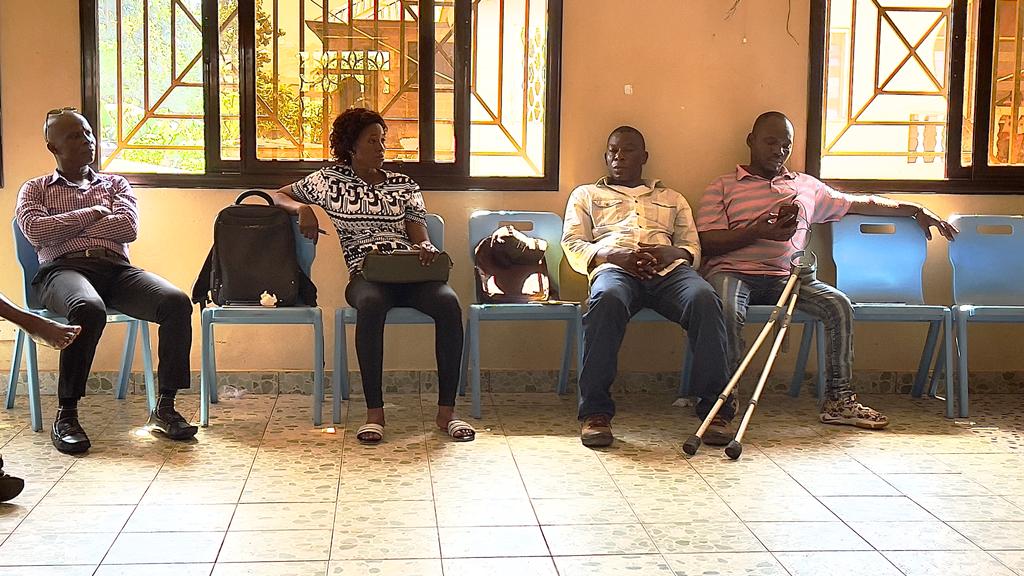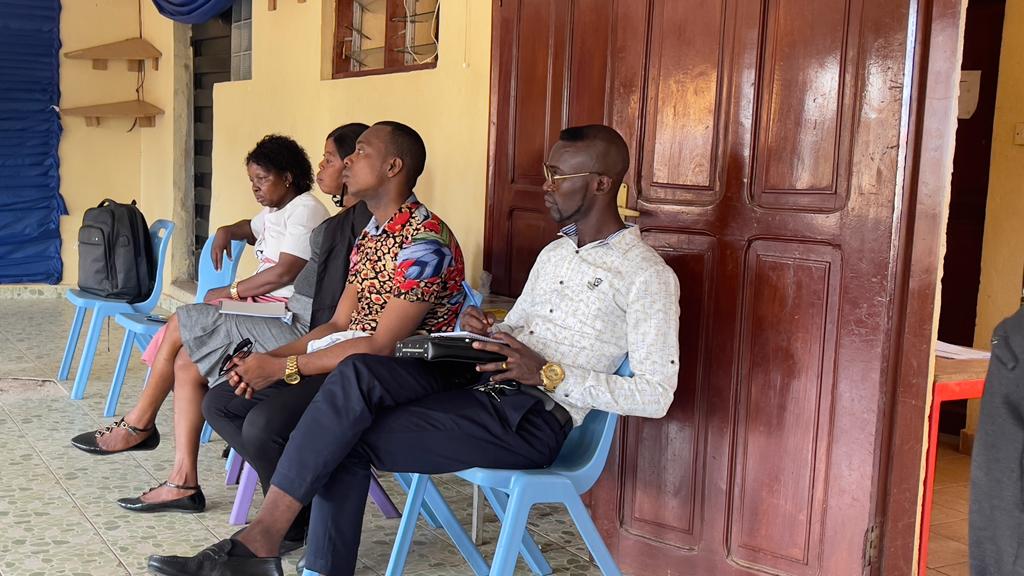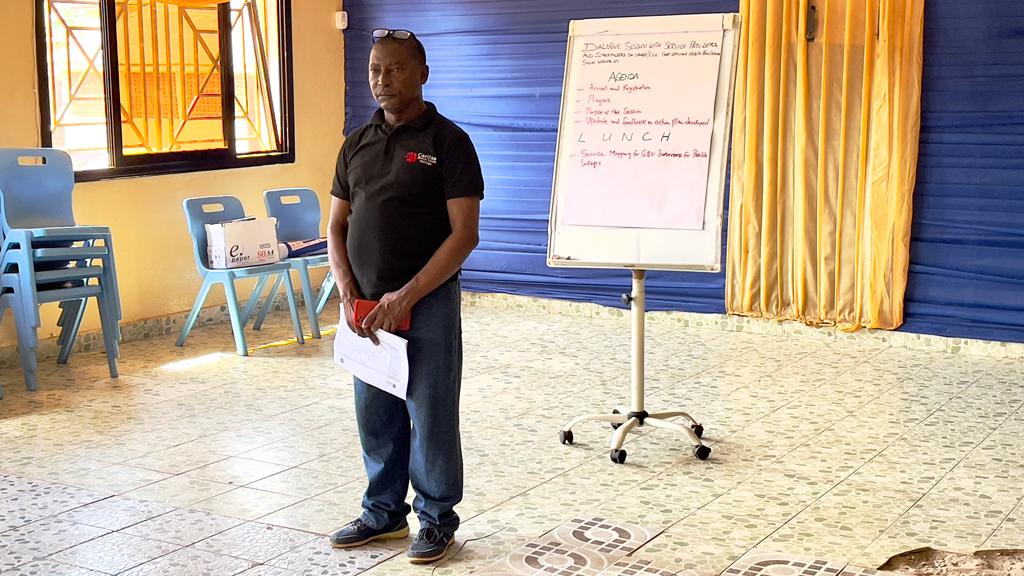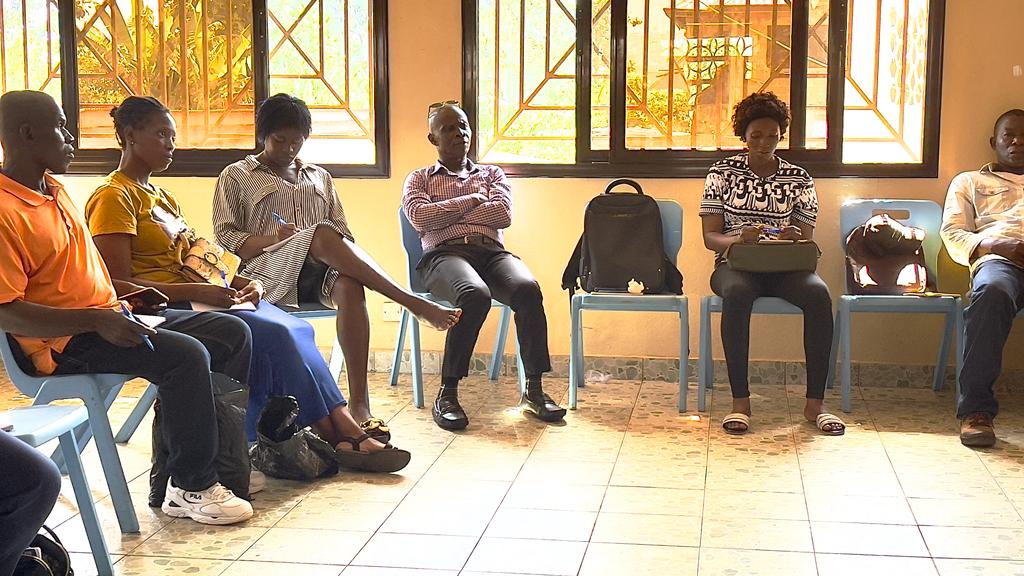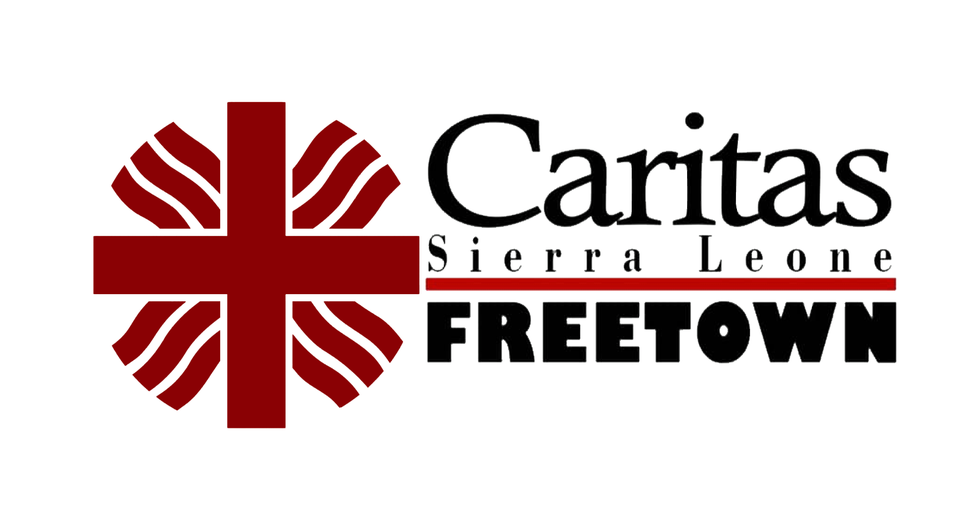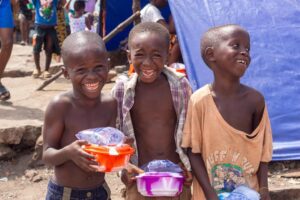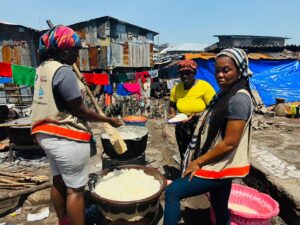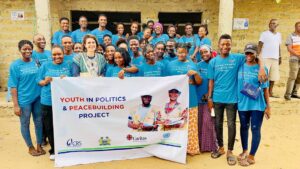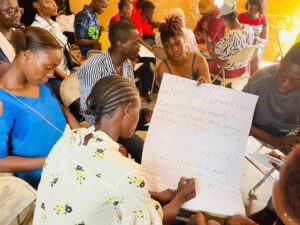Caritas Freetown Justice and Peace Commission, with support from Trocaire, organized a pivotal one-day dialogue session on Tuesday, December 13th, 2023, at Twin Hall, Hastings. The session centered around the critical theme of Preventing Violence Against Women and Girls (VAWG), brought together 30 dedicated VAWG service providers and stakeholders from both Western Urban and Western Rural Areas. The aim was to foster a platform for sharing successes, challenges, and lessons learned in the implementation of action plans.
Facilitating the discussion, Mr. Andrew Kponeh, the Lead Paralegal emphasized that the dialogue’s purpose extended beyond the recounting of successes and challenges. The session sought to illuminate the need for strengthening collaboration and coordination among VAWG service providers, pinpointing institutions actively involved in women and girls’ issues within communities for potential linkages. Mr. Kponeh highlighted that this session continued the momentum from the previous gathering in August, which delved into establishing a Standard of Operation (SOP) for response mechanisms on VAWG issues at organizational and institutional levels.
Participants actively engaged in reflections and shared their experiences dealing with VAWG cases, delving into the challenges faced and lessons learned. A central message emerged – the hindrance posed by poor coordination and a weak referral system between various support services, acting as a barrier to WAWG survivors’ access to justice and essential services. While a national referral protocol exists, its rollout lacks standardization, leading to cases being dismissed in court due to insufficient evidence or procedural improprieties. Recognizing this, the participants underscored the importance of engaging law enforcement bodies, the judiciary, and other service providers to fortify collaboration and the referral system, ultimately enhancing services for survivors of VAWG.
Providing an update and feedback on the action plan developed in the last coordinating meeting held in August, participants were divided into groups for a service mapping exercise at district and community levels. This exercise focused on mapping out services for Gender-Based Violence (GBV) survivors, capturing key details such as the institution’s name, location, services provided, operational hours, focal person, and contact information.
As the dialogue session drew to a close, it was evident that the collective efforts of VAWG service providers and stakeholders are integral in addressing the multifaceted challenges faced by survivors. The commitment to enhancing collaboration and strengthening referral pathways reflects a collective determination to provide improved and more effective services for those affected by violence against women and girls.
